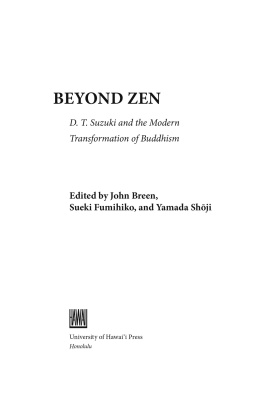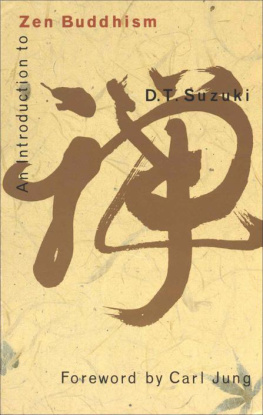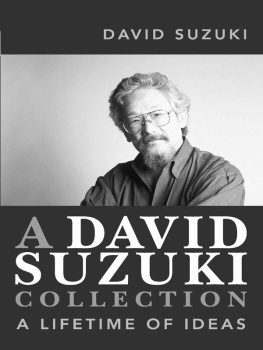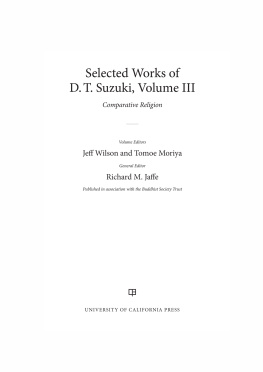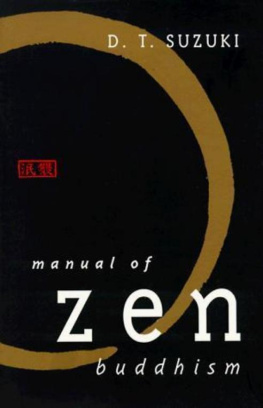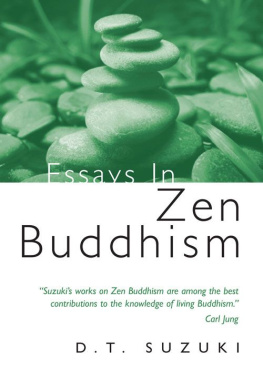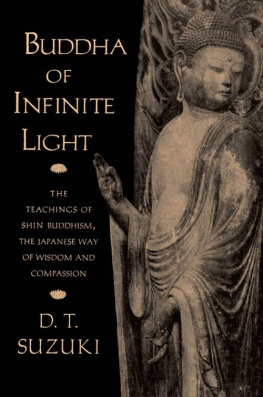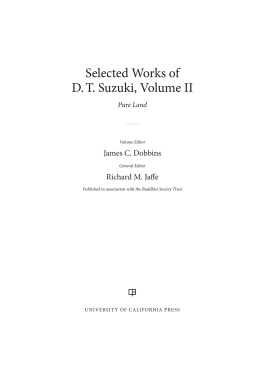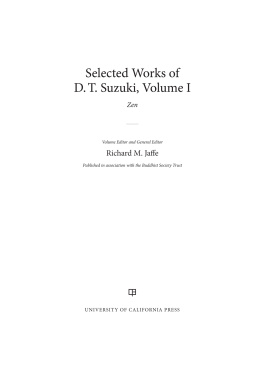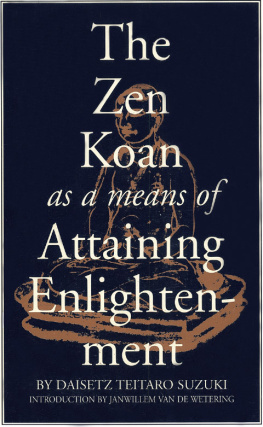Teitaro Suzuki - Manual of Zen Buddhism
Here you can read online Teitaro Suzuki - Manual of Zen Buddhism full text of the book (entire story) in english for free. Download pdf and epub, get meaning, cover and reviews about this ebook. genre: Religion. Description of the work, (preface) as well as reviews are available. Best literature library LitArk.com created for fans of good reading and offers a wide selection of genres:
Romance novel
Science fiction
Adventure
Detective
Science
History
Home and family
Prose
Art
Politics
Computer
Non-fiction
Religion
Business
Children
Humor
Choose a favorite category and find really read worthwhile books. Enjoy immersion in the world of imagination, feel the emotions of the characters or learn something new for yourself, make an fascinating discovery.

- Book:Manual of Zen Buddhism
- Author:
- Genre:
- Rating:5 / 5
- Favourites:Add to favourites
- Your mark:
- 100
- 1
- 2
- 3
- 4
- 5
Manual of Zen Buddhism: summary, description and annotation
We offer to read an annotation, description, summary or preface (depends on what the author of the book "Manual of Zen Buddhism" wrote himself). If you haven't found the necessary information about the book — write in the comments, we will try to find it.
Manual of Zen Buddhism — read online for free the complete book (whole text) full work
Below is the text of the book, divided by pages. System saving the place of the last page read, allows you to conveniently read the book "Manual of Zen Buddhism" online for free, without having to search again every time where you left off. Put a bookmark, and you can go to the page where you finished reading at any time.
Font size:
Interval:
Bookmark:
EDITOR'S FOREWORD TO SECOND EDITION
Daisetz Teitaro Suzuki, D.Litt., Professor of Buddhist Philosophy in the Otani University, Kyoto, was born in 1870. He is probably now the greatest living authority on Buddhist philosophy, and is certainly the greatest authority on Zen Buddhism. His major works in English on the subject of Buddhism number a dozen or more, and of his works in Japanese as yet unknown to the West there are at least eighteen. He is, moreover, as a chronological bibliography of books on Zen in English clearly shows, the pioneer teacher of the subject outside Japan, for except for Kaiten Nukariya's Religion of the Samurai (Luzac and Co., 1913) nothing was known of Zen as a living experience, save to the readers of The Eastern Buddhist (19211939), until the publication of Essays in Zen Buddhism (Volume I) in 1927.
Dr. Suzuki writes with authority. Not only has he studied original works in Sanskrit, Pali, Chinese and Japanese, but he has an up-to-date knowledge of Western thought in German and French as well as in the English which he speaks and writes so fluently. He is, moreover, more than a scholar; he is a Buddhist. Though not a priest of any Buddhist sect, he is honoured in every temple in Japan, for his knowledge of spiritual things, as all who have sat at his feet bear witness, is direct and profound. When he speaks of the higher stages of consciousness he speaks as a man who dwells therein, and the impression he makes on those who enter the fringes of his mind is that of a man who seeks for the intellectual symbols wherewith to describe a state of awareness which lies indeed beyond the intellect.
To those unable to sit at the feet of the Master his writings must be a substitute. All these, however, were Out of print in England by 1940, and all remaining stocks in Japan were destroyed in the fire which consumed three-quarters of Tokyo in 1945. When, therefore, I reached Japan in 1946, I arranged with the author for the Buddhist Society, Londonmy wife and myself as its nomineesto begin the publication of his Collected Works, reprinting the old favourites, and printing as fast as possible translations of the many new works which the Professor, self-immured in his house at Kyoto, had written during the war.
This undertaking, however, was beyond the powers of the Buddhist Society, and we therefore secured the assistance of Rider and Co., who, backed by the vast resources of the House of Hutchinson, can honour the needs of such a considerable task.
Of Zen itself I need say nothing here, but the increasing sale of books on the subject, such as The Spirit of Zen by Alan Watts (Murray), and the series of original translations of Chinese Zen Scriptures and other works published by the Buddhist Society prove that the interest of the West is rising rapidly. Zen, however, is a subject extremely easy to misunderstand, and it is therefore important that the words of a qualified Master should come readily to hand.
CHRISTMAS HUMPHREYS
President of the Buddhist Society, London
1948
EDITOR'S NOTE TO SECOND EDITION
All references to the Author's Essays in Zen Buddhism, Series One and Two, and to his Introduction to Zen Buddhism, are to the second edition of these works, published in The Complete Works of D. T. Suzuki.
PREFACE TO FIRST EDITION
In my Introduction to Zen Buddhism (published 1934), an outline of Zen teaching is sketched, and in The Training of the Zen Monk (1934) a description of the Meditation Hall and its life is given. To complete a triptych the present Manual has been compiled. The object is to inform the reader of the various literary materials relating to the monastery life. Foreign students often express their desire to know about what the Zen monk reads before the Buddha in his daily service, where his thoughts move in his leisure hours, and what objects of worship he has in the different quarters of his institution. This work will partly, it is hoped, satisfy their desire. Those who find my Essays too bulky or too elaborate may prefer these smaller works on Zen.
DAISETZ TEITARO SUZUKI
Kyoto
August 1935
I. GATHAS AND PRAYERS
Gatha is a Sanskrit term meaning verse or hymn. In Buddhist literature it is used to designate the versified portion of the sutras. Chinese scholars have adopted this word for their Versified compositions, which are known as chieh, an abbreviation of chieh-t'o, or as chieh-sang, which is the combination of the Sanskrit and the Chinese. The gathas collected here are not exclusively those of the Zen sect; some belong to general Buddhism.
I. ON OPENING THE SUTRA
The Dharma incomparably profound and exquisite
Is rarely met with, even in hundreds of thousands of millions of kalpas;
We are now permitted to see it, to listen to it, to accept and hold it;
May we truly understand the meaning of the Tathagata's words!
II. CONFESSION
All the evil karma ever committed by me since of old,
On account of greed, anger, and folly, which have no beginning,
Born of my body, mouth, and thought
I now make full open confession of it.
III. THE THREEFOLD REFUGE
I take refuge in the Buddha;
I take refuge in the Dharma;
I take refuge in the Sangha.
I take refuge in the Buddha, the incomparably honoured one;
I take refuge in the Dharma, honourable for its purity;
I take refuge in the Sangha, honourable for its harmonious life.
I have finished taking refuge in the Buddha;
I have finished taking refuge in the Dharma;
I have finished taking refuge in the Sangha.
IV. THE FOUR GREAT VOWS
However innumerable beings are, I vow to save them;
However inexhaustible the passions are, I vow to extinguish them;
However immeasurable the Dharmas are, I vow to master them;
However incomparable the Buddha-truth is, I vow to attain it.
V. THE WORSHIPPING OF THE SARIRA
We prostrate ourselves in all humbleness before the holy Sarira representing the body of Sakyamuni, the Tathagata, who is perfectly endowed with all the virtues, who has the Dharmakaya as the ground of his being, and Dharmadhatu as the stupa dedicated to him. To him we pay our respect with due deference. Manifesting himself in a bodily form for our sakes, the Buddha enters into us and makes us enter into him. His power being added to us, we attain Enlightenment; and [again] dependent on the Buddha's miraculous power, all beings are benefited, become desirous for Enlightenment, discipline themselves in the life of the Bodhisattva, and equally enter into perfect quietude where prevails infinite wisdom of absolute identity. We now prostrate ourselves before him.
VI. THE TEACHING OF THE SEVEN BUDDHAS
Not to commit evils,
But to do all that is good,
And to keep one's thought pure
This is the teaching of all the Buddhas.
VII. THE GATHA OF IMPERMANENCE
All composite things are impermanent,
They are subject to birth and death;
Put an end to birth and death,
And there is a blissful tranquillity.
VIII. THE YEMMEI KWANNON TEN-CLAUSE SUTRA
[Adoration to] Kwanzeon!
Adoration to the Buddha!
To the Buddha we are related
In terms of cause and effect.
Depending on the Buddha, the Dharma, and the Sangha,
[Nirvana is possible which is] eternal, ever-blessed, autonomous, and free from defilements.
Every morning our thoughts are on Kwanzeon,
Every evening our thoughts are on Kwanzeon.
Every thought issues from the Mind,
Every thought is not separated from the Mind.
IX. PRAYER ON THE OCCASION OF FEEDING THE HUNGRY GHOSTS
If one wishes to know all the Buddhas of the past, present, and future, one should contemplate the nature of this Dharmadhatu essentially as the creation of Absolute Mind.
Font size:
Interval:
Bookmark:
Similar books «Manual of Zen Buddhism»
Look at similar books to Manual of Zen Buddhism. We have selected literature similar in name and meaning in the hope of providing readers with more options to find new, interesting, not yet read works.
Discussion, reviews of the book Manual of Zen Buddhism and just readers' own opinions. Leave your comments, write what you think about the work, its meaning or the main characters. Specify what exactly you liked and what you didn't like, and why you think so.


